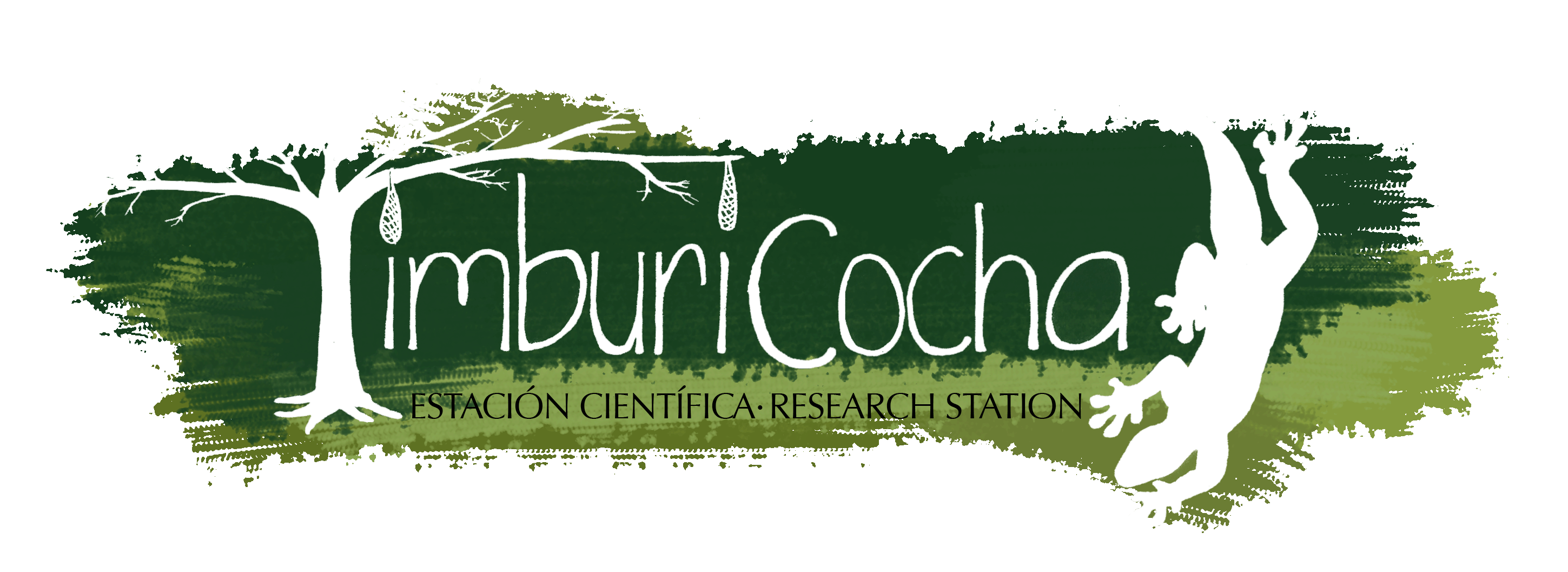

Research
-
Your research
Research
Conduct research in Payamino
Individuals or institutions wishing to conduct research at the Timburi Cocha Research Station are required to complete the research application below. Additionally, you must fill out a risk assessment, ethics form, and health declaration signed by your GP.
The research application and associated forms are currently being revised, please email info@timburi.org to request them.
Researchers are also required to obtain suitable permits to carry out their work in Payamino; alternatively, the station manager may be able to arrange your permit for a fee. For more information on obtaining research permits in Ecuador, please get in touch.
A copy of any report or publication resulting from research conducted in Payamino must be provided to the Timburi Cocha Research Station and the community of San José de Payamino. If more than one report or publication is produced from your research in Payamino, we require a copy of each piece of work or publication.
Additionally, your permit from the Ecuadorian Ministry of the Environment will require submission of a report or translation of publication in Spanish. You are responsable for ensuring the Ministry receives this, though the station manager can assist you if necessary.
Research goals
Though you are welcome to submit a research application to study any topic relevant to Payamino or the Amazon, we will prioritise research that helps us meet the research goals of the station.
The Timburi Research Station aims to facilitate and support:
1) The monitoring of all levels of biodiversity in the areas surrounding San José de Payamino, Orellana Province, Ecuador and the neighbouring Sumaco Napo-Galeras Biosphere Reserve. We are particularly interested in supporting work on birds, large mammals, amphibians, reptiles, fish, invertebrates, trees and epiphytes.
2) Environmental monitoring in the areas surrounding San José de Payamino, Orellana Province, Ecuador and the neighbouring Sumaco Napo-Galeras Biosphere Reserve. We are particularly interested in supporting work on water quality, forest cover, habitat use, environmental clines and ecosystem service provision.
3) Anthropogenic research in the areas surrounding San José de Payamino, Orellana Province, Ecuador and the neighbouring Sumaco Napo-Galeras Biosphere Reserve. We are particularly interested in supporting work on human land use, cultural relationships, governance and the environment and ecosystem service provision.
Student placement
Some universities offer placements as part of their courses. We have been receiving undergraduate and postgraduate placement students for over six years now, from several UK and US universities. As a placement student you will work for the station as well as conduct your own research.
The Timburi Cocha research station currently counts on a station manager who keeps the site up and running, is our liaison with the local community, and manages all the logistical aspects on the ground and day-to-day life at the station. Experimental and research supervision is done remotely either by academic staff at your institution or our academic staff at Manchester Metropolitan University, UK. Different universities have different requirements for their placement students, so we are very happy to discuss your options with you and/or a representative from your institution (this may be a tutor, a placement officer, etc.).
Currently, we are offering five short (3-6 months) or longterm (6-12 months) placements projects, supervised by staff at Manchester Metropolitan University or associated institutions:
-
Camera trapping mammals across primary and secondary forest grids
-
Measuring frog morphometrics
-
Mapping Heliconia species
-
Sampling invertebrate communities in Heliconia phytotelmata
-
Spider diversity